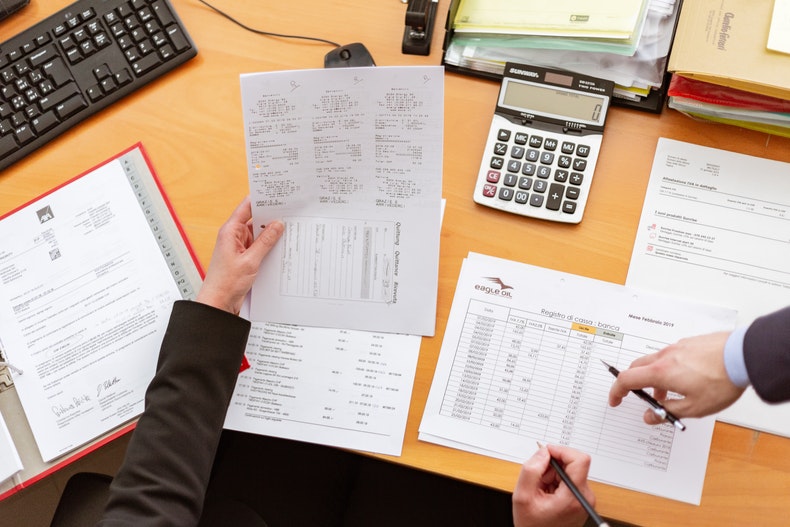In the wake of the pandemic, our economy is a roller coaster, and businesses large and small are having to adapt or pivot entirely to survive. Not only is there a question of social distancing and sanitizing protocols to follow, but they need to adjust the service or product you offer to be relevant and in demand for consumers right now.
Distilleries are making hand sanitizer. Restaurants are offering take out and distanced patio dining. Retail stores offer online ordering, and contactless delivery or curbside pickup, or both. Has your business been able to adapt like this?
So many small businesses have not. Neighborhood bars, performing artists, small specialty shops, fitness coaches, and yoga instructors, and anyone who must touch or work closely with others as part of their job who are not considered “essential workers” are likely out of a job. Many other service workers are out of business because their service is not in high demand right now. Is anyone really renting tuxedos? Visiting their travel agent? Antiquing? Probably not.
If you are in this situation and have maxed out your grant and loan options under the CARES Act, you might be wondering if bankruptcy is right for you. This article will explain what forms of bankruptcy are available to you, what bankruptcy can do for you, and special considerations for a sole proprietor or single-member LLC.

Forms of Business Bankruptcy
What type of bankruptcy you file will depend upon how your business is organized, and your goals in the filing, whether you want to continue business operations or not.
Chapter 11 Bankruptcy
This is the most known form of bankruptcy for large, nation-wide businesses. High-worth individuals can also file Chapter 11 if their income is too high for them to qualify to file Chapter 13.
A business filing Chapter 11 will usually employ a team of attorneys and accountants to draw up a bankruptcy petition and schedules and create a plan of reorganization. Cash flow, expenses, assets, and debts are all disclosed. All creditors get notice of the filing and have the opportunity to object to their treatment under that reorganization plan.
Ideally, a business will come out of Chapter 11 solvent, but in fact, this happens in only 10-15% of filings. The remaining filings are either dismissed or converted to Chapter 7 liquidation proceedings.
Filing Chapter 11 is complicated and expensive. Although there is an expedited small business track, the filing requirements are still onerous and for that reason, attorney fees are high. Small business owners may have other more feasible options.
Chapter 13 – for the Sole Proprietor or Single Member LLC Only
If you own your business as a sole proprietor or a single-member LLC, you may qualify to file Chapter 13 instead of Chapter 11 because you and your business are considered one and the same financial entity.
Chapter 13 is for individuals, and like Chapter 11, it requires an individual to disclose income, expenses, assets, and debts. A Chapter 13 debtor will also file a plan in which he or she can propose to pay a certain percentage (if anything at all) to unsecured creditors, and “cram down” car lenders or “strip off” liens on real property, and surrender real and personal property (or equipment) to lenders if that property is no longer affordable.
A Chapter 13 debtor who is a sole proprietor or single-member LLC can fold both individual and business debts into his or her filing and deal with both at once. This is especially useful if you’ve personally guaranteed any business loans because both you and your business will be discharged from that obligation.
What is a Car Loan “Cram Down?”
Simply put, if your car is worth less than the retail value as of the date of your Chapter 13 filing, you can “cram down” the lender to retail value plus interest at a rate of prime plus 1-3%, and pay that amount off over your three- or five-year plan.
Whether you treat your personal vehicle this way, or your business vehicle(s), cram down can save you thousands of dollars.
What is the Second Mortgage “Strip Off?”
If your real property is worth less than your first mortgage, and you have a second mortgage or HELOC (or both!), any lien in excess of the first mortgage can be stripped off as unsecured in a Chapter 13 filing. Again, you can save many thousands if you find your personal or business property underwater.
Chapter 7 Bankruptcy
This is a 4-6 month liquidation process by which, again, a debtor discloses all income, expenses, assets, and debts, and is discharged of all debt. The Chapter 7 Trustee seizes and sells all business assets for the benefit of creditors, and the business ceases operations.
Again, if you are a sole proprietor or single-member LLC you can file one Chapter 7 case for both your personal and business debt. However, be advised that your personal property in excess of applicable exemptions will be available for the Trustee to seize and sell. In any case, a successful Chapter 7 filing allows you to walk away from your personal and business debt-free and clear.
I Had to Personally Guarantee a Loan for My Start-Up. How Does that Work in Bankruptcy?
It depends on how your business is organized.
If you are organized as anything other than a sole proprietor or single-member LLC, your business will file Chapter 11 or Chapter 7. In either event, you are still personally liable for any business debt even if your business’ bankruptcy filing is successful.
If you are a sole proprietor or single-member LLC, your personal guarantee is discharged when your business obligations are discharged, in both Chapter 7 and Chapter 13.
Business bankruptcy can get very complex very quickly. Be sure to consult with an experienced business bankruptcy attorney to make sure you don’t incur any unintentional consequences as a result of your filing. Best of luck!
Veronica Baxter is a legal assistant and blogger living and working in the great city of Philadelphia. She frequently works with David Offen, Esq., a busy Philadelphia bankruptcy lawyer.







